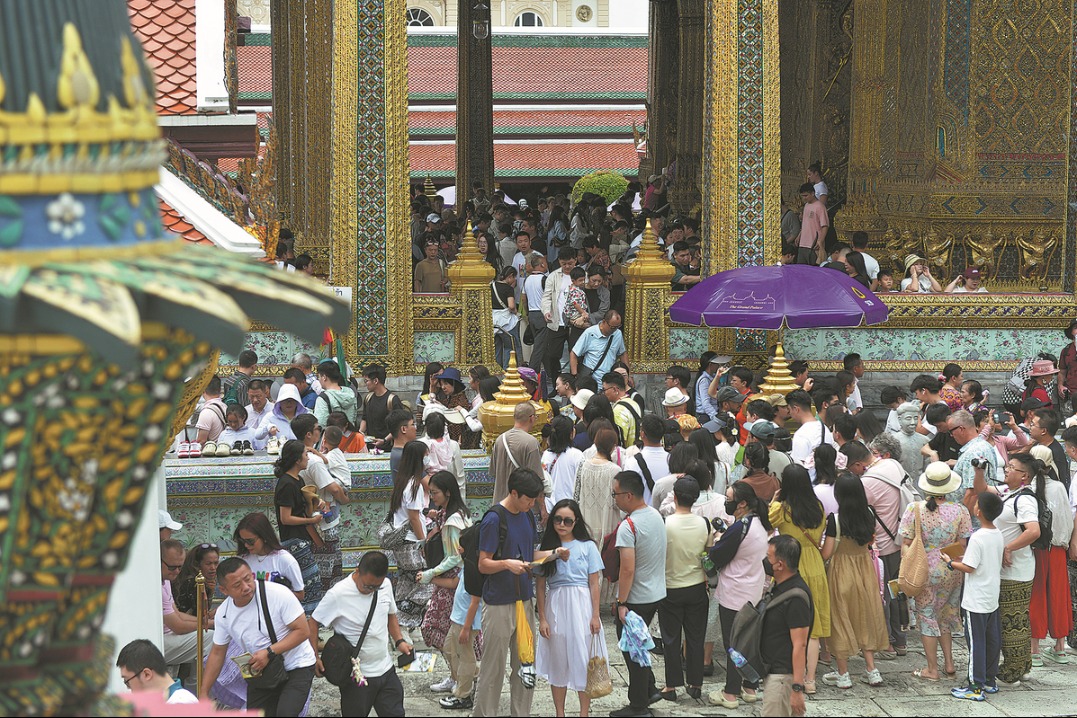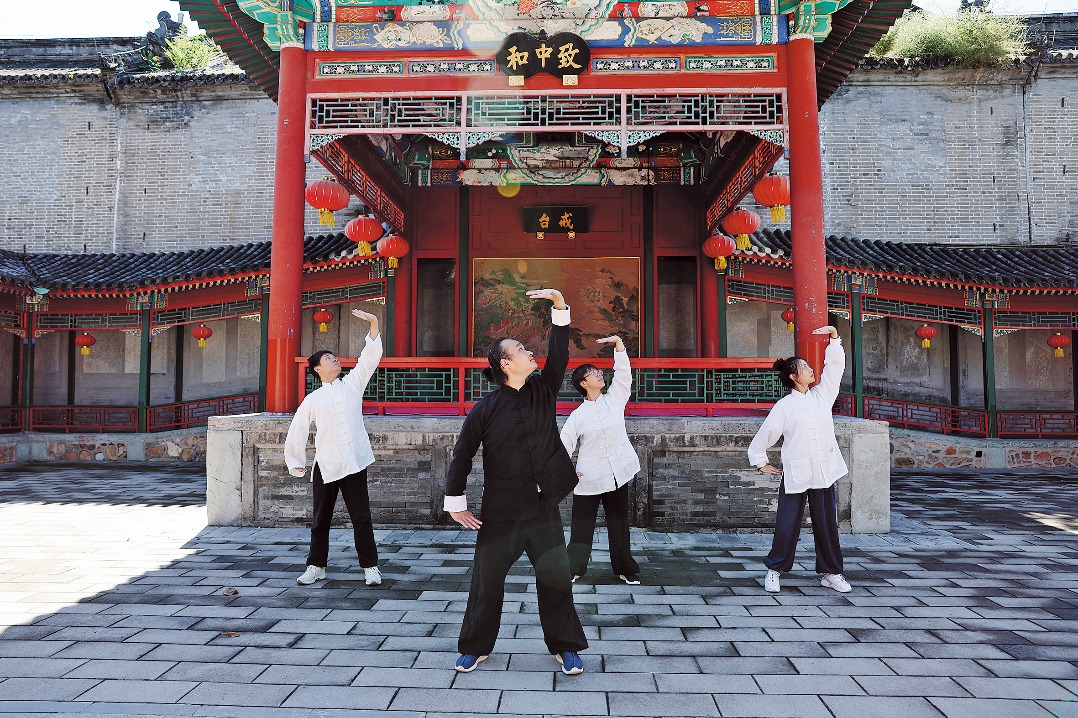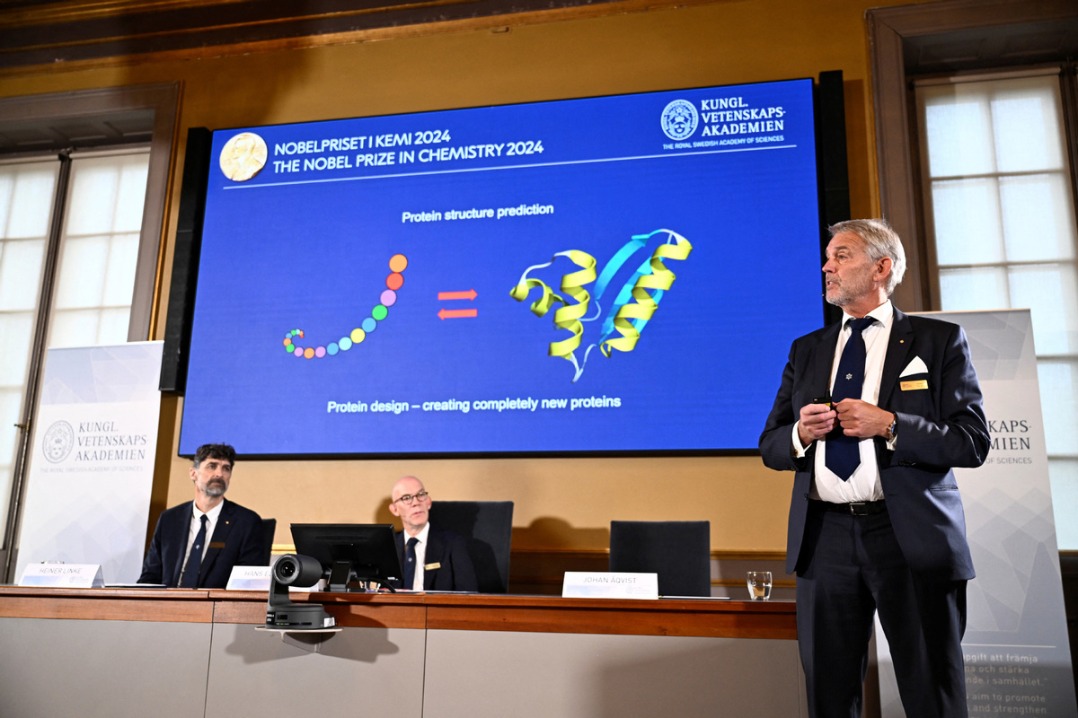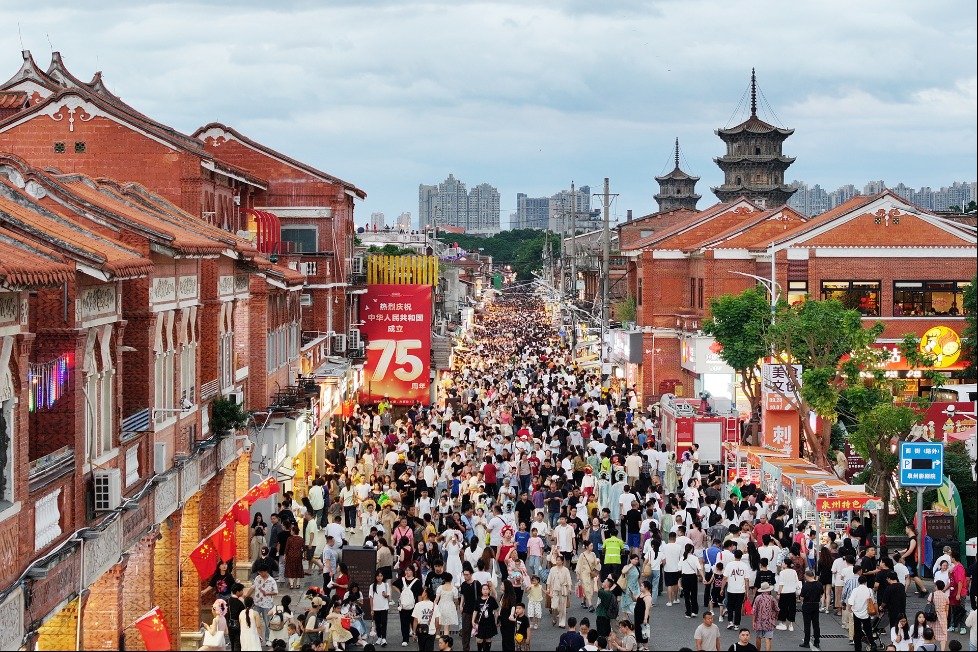Latter-day Marco Polo relishes his 'lucky exploration'
By YANG RAN | China Daily Global | Updated: 2024-10-10 09:28

Editor's note: China Daily presents the series Friends Afar to tell the stories of people-to-people exchanges between China and other countries. Through the vivid narration of the people in the stories, readers can get a better understanding of a country that is boosting openness.
Alessandro Martini has spent about eight years in China, a sojourn he often compares to that of his compatriot Marco Polo, the Italian who lifted the veil from China for the West.
Polo, the 700th anniversary of whose death was marked in January, was drawn to the Orient by his father, uncle and the scent of commercial opportunities. Martini was drawn to China for more cerebral reasons, a fascination with the Chinese language.
While such a specialized pursuit may seem rather narrow for some, Martini insists that it turned China into a giant lucky dip of exploration for him, what the Chinese call a manghe, or blind box.
It was purely his interest in the language that drew him to China, and he "had no preconceived notions about the country", he said.
"It was the complexity of Chinese that intrigued me. I've always had a knack for languages. I could speak English, French and Spanish pretty well, so I was determined to master Chinese, to enjoy the sense of satisfaction of achieving what was beyond others.
"Most Westerners find the tones of Chinese and the written language challenging, but the characters have a beauty of their own. Their historical depth captivated me."
In fact, in the characters, with their sometimes mesmerizing collection of horizontal and vertical strokes as well as dots, he gained an inkling of the complexities and wonder of Chinese culture, taking him back to tales of wonder that he had heard as a child.
"Few Westerners are aware that Chinese characters were once used on oracle bones for divination," he said. "There's something magical about that."
In 2016, when he was 20, his fascination led him to the Beijing Language and Culture University to study Chinese. Since then his life has become ever more enmeshed with China, he said. Beyond mastering the language he has thrown himself into trying to understand all there is to understand about Chinese culture, to the point that he reckons he is now as close to being Chinese as one could be without being Chinese.
"In living in China, the greatest benefit for me hasn't been learning the language per se, but in understanding and appreciating the culture."
One element of that learning has been living in a Beijing hutong, a traditional alley, where he has gained invaluable insights into the complexity of Chinese society and the local lifestyle, as well as experiencing firsthand the warmth of Chinese people.
"First and foremost, living in a hutong means living close to others in a tightly-knit community. It's just one dimension of Chinese society that contrasts starkly with the fast-paced life of Beijing's expansive, modern avenues."
He fondly recalls his landlord, an elderly gent who, for him, embodied the community spirit of a hutong.
"Any time I was about to fly back to Italy on holiday I always paid the rent in advance, and he'd deduct a bit from it and ask me to use it to buy gifts for my parents. The uncles and aunties in the hutong also treated me with great warmth and friendliness."
Content creator
Martini's life took an unexpected turn in 2019 after a speech he gave about his life in a hutong led to his appearance on the Chinese television talk show Feizhengshi Huitan (Informal Talks). Almost overnight he became a celebrity in China, and when the pandemic broke out the following year, he began to look at social media as a way of letting others know about his expertise and experience with Chinese and Italian cultures.
"Creating content on social media wasn't my original plan, but once I started doing it full-time, I found that I enjoyed writing scripts, which also allows me to use the Chinese I have learned in college."
Now, he has more than a million followers across Chinese social platforms such as Xiaohongshu, Weibo and Bilibili.
"Chinese audiences are unique. They take pride in their culture. When I express my genuine appreciation for aspects of Chinese culture, such as Peking Opera, something that may not even gel with a lot of young Chinese, people are pleasantly surprised.
"They're also curious about another culture and willing to embrace it."
In his four years or so as a content creator he has had many touching moments, he said.
"Once a follower sent me a lengthy article expressing his love for Italian culture and art. I was moved by the effort he made just to share his appreciation with me. I translated the message and posted it on Instagram for my Italian friends to see. The positive response from Italians, who were proud to see their culture appreciated, was also heartwarming."
Such mutual appreciation for diverse cultures is something Martini said he continues to cherish and promote through his work.
This year, as China and Italy commemorate the 700th anniversary of Marco Polo's death, Martini took part in a play portraying Polo, further aligning his odyssey with that of the historical figure.
"While many Italians are learning Chinese, there's still a vast majority who are unaware of what China is truly like. There's potential for collaboration between Italy and China in areas such as infrastructure and beyond. I hope Western countries are more open to learning from China and working with it."
Martini said he is eager to delve deeper into China's traditional culture and help international audiences appreciate it.
"Most foreign content creators focus on China's development and modernization. These topics are important and visually appealing for viewers, but I reckon China's art and architecture, all kinds of landscapes, from mountains to beaches merit more attention."
As Martini reflects on the broader impact of expatriates like him who have lived in China for a long time, he exudes optimism.
"In 20 or 30 years the full effect of our experiences here will become apparent. It's about what all these young foreigners, who have been nurtured by their time here, will become," he said.
One way in which Martini cannot yet match Marco Polo is the time he has spent in China. Compared with Martini's eight years in the country, Polo spent 17 years in China before heading back to his homeland. Yet Martini said he is so comfortable living in the country that he can see himself living here for many more years to come.
























